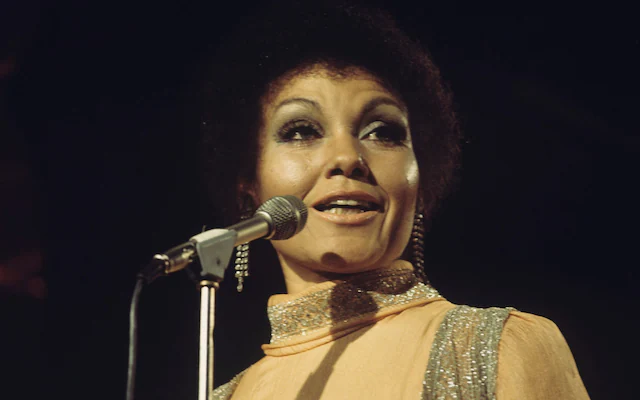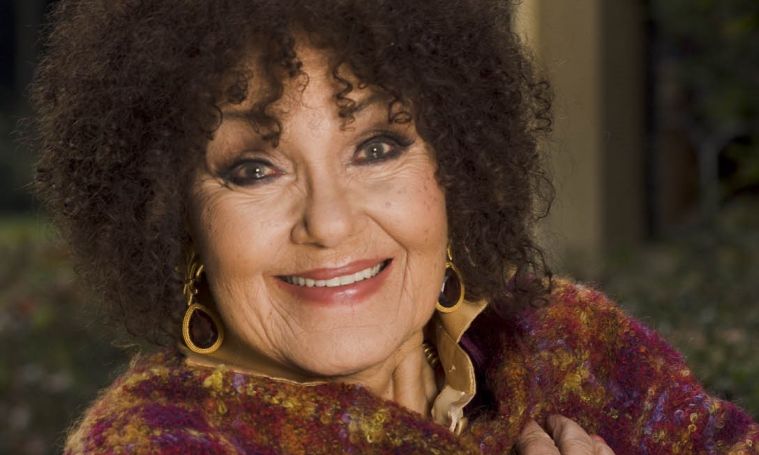
Dame Cleo Laine, Lady Dankworth: The Voice That Sang Scat Across Generations
Cleo Laine, born Clementine Dinah Hitching on October 28, 1927, in Southall, Middlesex, England, was a trailblazing English jazz and pop singer and an accomplished actress. Renowned for her wide vocal range and expert scat singing, Laine left an indelible mark on both British and international music and theater. Over a career that spanned eight decades, she became not only a cultural icon but also a symbol of boundary-crossing artistry in the world of jazz, classical, and stage performance.
Cleo Laine passed away on July 24, 2025, just shy of her 98th birthday, leaving behind a rich legacy of musical innovation, dramatic excellence, and personal resilience. Her contributions to the arts earned her numerous accolades, including the title of Dame Commander of the Order of the British Empire (DBE), as well as a dedicated place in the hearts of music lovers worldwide.
Early Life and Heritage
Cleo Laine was born to a Jamaican father, Alexander Sylvanus Hitching, a building laborer and violinist, and an English mother, Minnie Bullock, a farmer’s daughter. Growing up in a working-class household in the multicultural borough of Southall exposed her early to both hardship and rich cultural diversity. Her mixed-race heritage was unusual and at times challenging in 1930s England, yet it would later become a strength as she embodied the confluence of different traditions in her music.
From an early age, Laine showed an interest in performing. She studied singing and piano, and she briefly attended the Board School in Southall before leaving formal education at the age of 14. Like many of her generation, she took up a series of wartime jobs, working as a hairdresser’s assistant, a library clerk, and a baker. But music remained her deepest passion.
The Breakthrough: Meeting John Dankworth
Cleo’s career took a decisive turn in 1950 when she auditioned for John Dankworth’s jazz band. Dankworth, a talented saxophonist, bandleader, and composer, immediately recognized her potential and hired her as the band’s vocalist. The musical and romantic chemistry between the two blossomed quickly. They married in 1958, beginning a partnership that would span more than five decades.
With the Johnny Dankworth Seven, Laine began developing her unique style—an intricate blend of jazz, pop, and classical music characterized by her perfect pitch, control, and daring improvisation. Her scat singing, in particular, showcased her virtuosity and risk-taking, setting her apart from contemporaries and placing her among the jazz greats.
Crossing Genres and Breaking Barriers
While many artists choose a single genre to master, Cleo Laine’s career was defined by her refusal to be pigeonholed. She was just as comfortable singing the works of Duke Ellington as she was performing the classical pieces of Bach or the complex poetry of Shakespeare.
One of her most celebrated accomplishments was her ability to bring jazz sensibilities into classical contexts. In the 1970s, she collaborated with conductor John Williams and the London Symphony Orchestra to record works like “Shakespeare and All That Jazz,” an album that showcased her skill in delivering sonnets and soliloquies through vocal jazz. Her command of diction, rhythm, and tone allowed her to seamlessly move between disciplines.
.
Her versatility culminated in a historic moment in 1976 when she became the only female performer to receive Grammy nominations in jazz, classical, and pop categories—a testament to her genre-defying artistry.
A Voice on the Stage
In addition to her music career, Laine made significant contributions to the stage. She was particularly celebrated for her role in “Show Boat” at the Adelphi Theatre in London and later on Broadway. In 1972, she starred in the musical “The Mystery of Edwin Drood,” earning critical acclaim.
Perhaps most notably, she played the lead in “A Little Night Music” and took on classical theater with her performance in “The Tempest.” Her theatrical work was marked by a commanding stage presence and a deep emotional intelligence that made her characters unforgettable.
Cleo’s acting prowess helped normalize the casting of performers of color in traditionally white-dominated theatrical spaces. Her presence on major stages in London and New York during the mid-20th century was groundbreaking.
International Stardom
Cleo Laine‘s reputation was not confined to the United Kingdom. She became a prominent international star, particularly in the United States, where her vocal style found a wide audience. Her appearances at venues like Carnegie Hall and the Hollywood Bowl solidified her status as one of the preeminent jazz vocalists of her time.
She worked with legends such as Ray Charles, Mel Tormé, James Galway, and Placido Domingo, always managing to hold her own and often steal the show. Her collaborations transcended genres and borders, and she was a regular on American television variety shows and late-night programs during the 1970s and 1980s.
Her U.S. album releases often charted well, and her tours across North America, Europe, and Australia introduced new audiences to her sophisticated, dynamic sound.
Family and Personal Life
Cleo Laine and John Dankworth’s marriage was not only a romantic partnership but a creative one. Together they founded The Stables Theatre in Wavendon, Buckinghamshire, in 1970, which has since become one of the UK’s premier venues for jazz, classical, and world music.
They had two children: Jacqui Dankworth, an acclaimed singer in her own right, and Alec Dankworth, a renowned jazz bassist. Both children have continued the family’s musical legacy, often collaborating with their mother in later years.
Despite their fame, Cleo and John maintained a close-knit family life rooted in music, mutual respect, and a deep commitment to the arts. Their shared vision helped nurture a vibrant cultural community in the British countryside.
Honors and Legacy
Dame Cleo Laine received numerous awards and honors throughout her lifetime:
- Commander of the Order of the British Empire (CBE) in 1979
- Dame Commander (DBE) in 1997 for services to music
- Lifetime Achievement Grammy Award nomination
- Honorary doctorates from multiple universities
- Fellow of the Royal Academy of Music
Her recordings, including “Cleo at Carnegie,” “Born on a Friday,” “Blue and Sentimental,” and “Cleo Laine Sings Sondheim,” remain essential listening for students of vocal music and jazz.
Even into her 90s, Laine remained musically active, occasionally appearing at The Stables and supporting young artists through mentoring and charitable work. Her voice, though matured with age, never lost its expressive power.
The Final Years
After the death of Sir John Dankworth in 2010, Cleo Laine continued to perform sporadically but focused more on legacy work, including autobiographical projects, archival recordings, and the continued development of The Stables Theatre.

.
In her later years, she was honored as one of Britain’s national treasures, often appearing in documentaries, receiving lifetime achievement awards, and being celebrated at festivals. Despite health challenges, she retained her wit, grace, and clarity of purpose.
Her final public performance occurred in 2022 at a tribute concert held at The Stables in celebration of the venue’s 50th anniversary. The performance was met with thunderous applause and served as a poignant farewell to live audiences.
A Lasting Influence
Cleo Laine’s death on July 24, 2025, marked the end of an era. But her influence continues to ripple through the music and theater worlds. She shattered barriers not only of race and gender but also of genre and expectation.
As a jazz vocalist, she brought new dimensions to scat and vocal improvisation. As a classical performer, she infused emotional resonance into structured compositions. As an actress, she challenged traditional roles and proved the power of presence and poise. And as a mother and mentor, she passed her gifts to the next generation.
Musicians, critics, and fans alike agree that Cleo Laine changed the landscape of vocal music. Her voice—fluid, fearless, and unforgettable—remains a guiding light for artists striving to transcend limitations and find their own unique sound.
Conclusion
Dame Cleo Laine’s life was a symphony of passion, perseverance, and profound talent. Her journey from a working-class girl in Southall to an international icon exemplifies the power of artistry to unite, elevate, and transform.
Her work will be studied and celebrated for generations to come—not only for its technical brilliance but for its emotional truth and trailblazing spirit. In every note she sang, there was a sense of daring, of reaching beyond the expected, and of embracing the full spectrum of human expression.
In an age of fleeting fame and passing trends, Cleo Laine’s legacy endures as a testament to excellence, integrity, and the boundless possibilities of the human voice.
Check our Cleo Laine on Amazon by clicking here.
If you found this interesting please share it with your friends and family, and check out some of our other articles on Musicians who Died in 2025.
.


Cool lady!